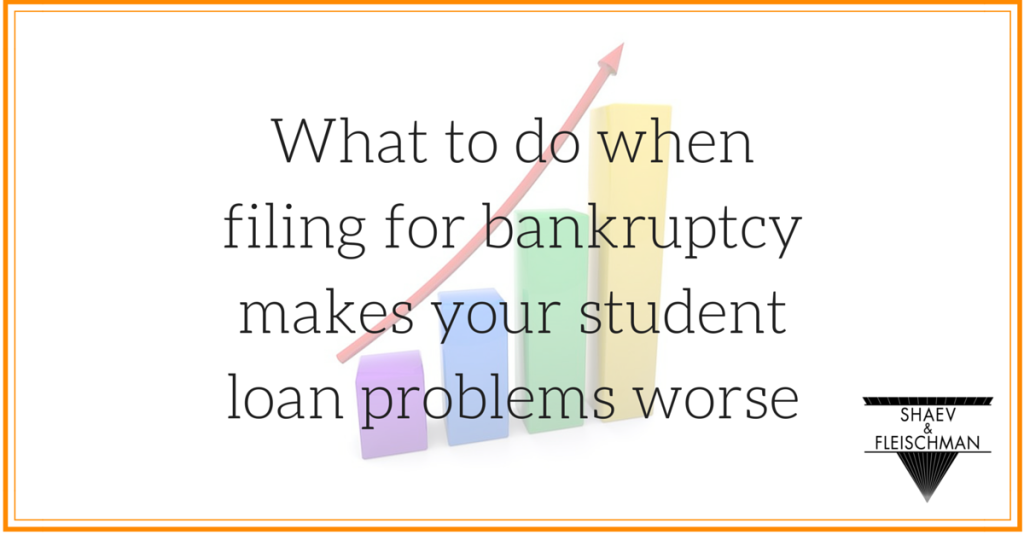The Wall Street Journal notes that people who file for Chapter 13 bankruptcy often end up owing more on their student loans at the end of the process. The good news is that you can minimize the damage.
If you file for bankruptcy, you’re most likely not going to be able to get rid of your student loan debt.
Though you know you’ll be responsible for the balance at the end of the bankruptcy, you may not realize that interest continues to build while you’re going through the process.
Here are some ways to deal with the situation.
Continue Paying The Loans During Chapter 7 Bankruptcy
One of the reasons why the loan balance goes up is because you’re not paying it down. The interest capitalizes, which means that interest becomes principal once it’s accrues. In the end, you’re paying interest on your interest.
If you’re in a Chapter 7 bankruptcy, there’s no reason to stop making student loan payments while your case is winding through the court system. Continue making payments and your balance will continue to go down.
See also:
Restructure Loans Before Filing Chapter 13 Bankruptcy
Under Chapter 13 bankruptcy, chances are good that your court will force you to make your student loan payments inside your Chapter 13 Plan. If that’s the case where you’re from, then you should do what you can to lower the student loan payments before your case is filed.
Some options for lowering student loan payments include consolidation and looking into an income-dependent repayment option. Finalizing the process before jumping into the bankruptcy court will make it more likely that the amount being sent to your student loan folks by the Chapter 13 trustee cover the interest payments.
See also:
- Chapter 13 Bankruptcy Basics
- Federal Student Loans? Choose Your Repayment Options Wisely!
- Taming The Federal Student Loan Beast With Income-Based Repayment
Pay The Student Loan In Full During Your Chapter 13 Bankruptcy
It’s a long shot, but if you can fund a Chapter 13 Plan that pays off the student loan in full then you will be able to avoid the post-bankruptcy interest charges.
I know, I know – that’s nearly impossible. Still, I had to say it.
Consider Multiple Bankruptcy Filings
If possible, look into a Chapter 13 bankruptcy after wiping out the rest of your debts in Chapter 7. Doing so ensures that all of your payments under your Chapter 13 Plan go to the student loan companies.
That, in turn, maximizes the chances that you can pay down the loan during the 3-5 year term of your Chapter 13 Plan.
When All Else Fails – Relax
If you’re filing for bankruptcy, you’re doing it because you’ve got debts you can’t pay. Working through those issues will put you in a better position to handle your student loan debts later on.
It may not be a perfect plan, but it’s better than doing nothing.
